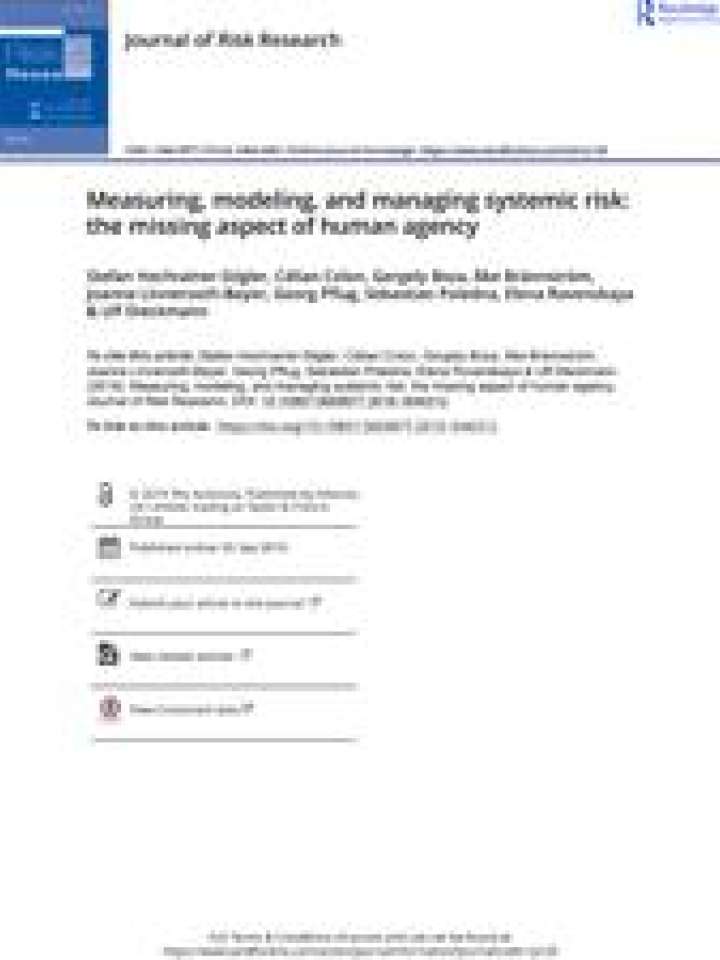Measuring, modeling, and managing systemic risk: the missing aspect of human agency
It is problematic to treat systemic risk as a merely technical problem that can be solved by natural-science methods and through biological and ecological analogies. There appears to be a discrepancy between understanding systemic risk from a natural-science perspective and the unresolved challenges that arise when humans with their initiatives and interactions are included in systemic-risk considerations. It is therefore necessary to investigate possible fundamental differences and similarities of systemic risk with and without accounting for human involvement. Focusing on applied and implementation aspects of measuring, modeling, and managing systemic risks, were identified three important and distinct features characterizing such fundamental differences: indetermination, indecision, and responsibility. It is affirmed that, first, including human initiatives and interactions in systemic-risk considerations must emphasize a type of variability that is especially relevant in this context, namely the role of free will as a fundamental source of essential indetermination in human agency. Second, it is postulated that collective indecision generated by mutual uncertainty often leads to the suspension or alteration of rules, procedures, scripts, and norms. Consequently, the associated systemic risks cannot be incorporated into explanatory models, as the new causal rules cannot be predicted and accounted for. Third, analogies from biology and ecology, especially the idea of ‘contagion,’ downplay human agency, and therefore human responsibility, promoting the false belief that systemic risk is a merely technical problem. For each of these three features, are provided recommendations for future directions and suggest how measuring, modeling, and managing approaches from the natural-science domain can best be applied in light of human agency.
Explore further
